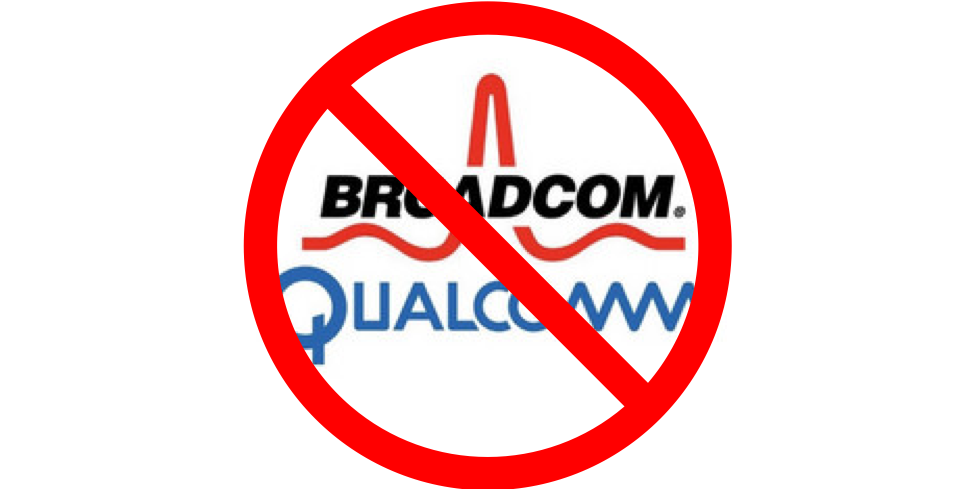
President Trump signed an executive order yesterday blocking Broadcom’s hostile takeover of wireless pioneer Qualcomm, citing national security concerns. Squashing what would have been the biggest deal in tech history at $117 billion was the right move, but nobody seems to be clear on why. Allow me to clarify.
Perhaps the reason for all the confusion is that today’s Broadcom is not actually Broadcom. In 2015 Avago Technologies acquired much larger Broadcom for $37 billion in a highly leveraged buyout that created $15.5 billion in debt. Avago, based in Singapore, then changed its name to Broadcom.
Who or rather what is Avago?
Avago was itself created as a leveraged buyout of what was once HP’s semiconductor products division from Agilent Technologies by KKR and Silver Lake Partners for $2.6 billion. The two private equity firms brought in Hock Tan to run the show.
Who is Hock Tan?
Tan is a finance guy who ended up running a little-known chip company named Integrated Circuit Systems. In 2005 IDT, a somewhat better known little chip company, acquired ICS making Tan chairman. KKR and Silver Lake tapped Tan to run Avago soon thereafter. That’s when the fun started.
Over the past decade or so Tan has embarked on the biggest buying spree since milkman and hotelier Bernie Ebbers turned a tiny phone company into telecom giant WorldCom. After Washington blocked his attempted $115 billion takeover of Sprint, WorldCom unraveled in a mass of fraud, sending Ebbers and CFO Scott Sullivan to prison and the company into bankruptcy.
Similar to WorldCom, all of Tan’s acquisitions have been highly leveraged, buying progressively bigger and bigger companies, from CyOptics and PLX Technology to LSI Corp. and finally Broadcom. Today Avago, I mean Broadcom, is in my view wildly overvalued with a $113 billion market cap, a P/E of 65 and a mountain of debt.
What Tan and his mashup of executives and directors from previous lives and acquisitions do is cherry pick which products they want to keep and can the rest, often resulting in layoffs — not just in administrative functions but also in marketing, sales and R&D. I have quite a few friends and associates who have been axed as a result of Hock’s hacking.
Clear as mud, right? At least now you know why I was against Broadcom’s hostile takeover of Qualcomm, a remarkably prolific wireless innovator without which the modern smartphone market would not even exist. I believe Tan would have gutted the company, slashed R&D and laid off thousands, primarily in San Diego.
As for the Trump Administration’s national security concerns, neither Tan nor Broadcom have any ties to China that I’m aware of, other than selling more products to customers there than any other nation. Ironically, the same is true of Qualcomm.
There is speculation that the takeover might have affected Qualcomm’s investment in 5G — the next generation of cellular — but again, it’s not clear how that would have impacted United States security. Whatever. I’m just happy Washington blocked the deal. And that’s a first for me.